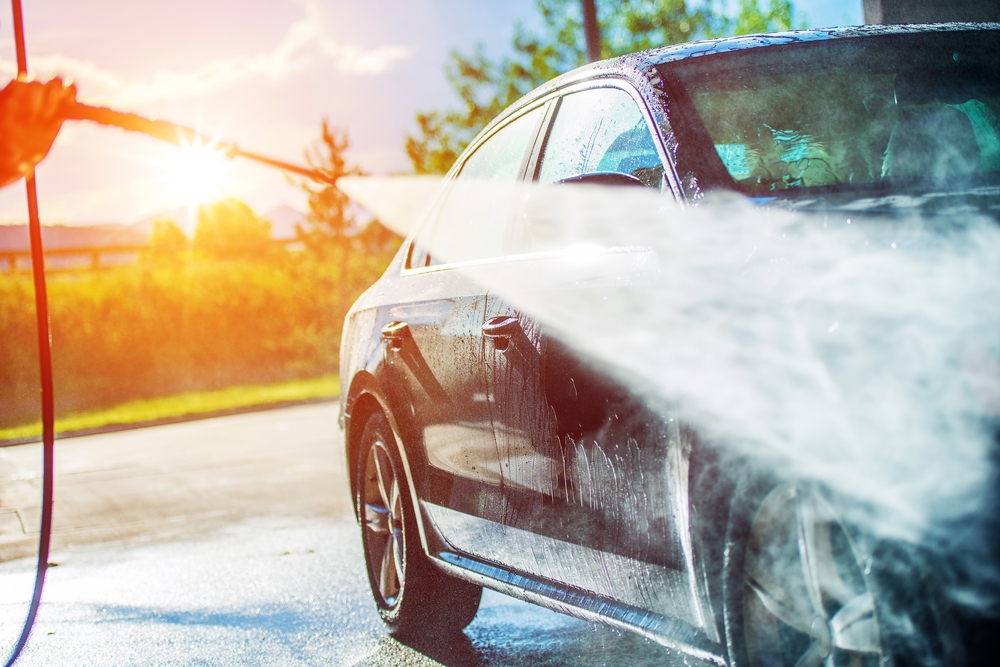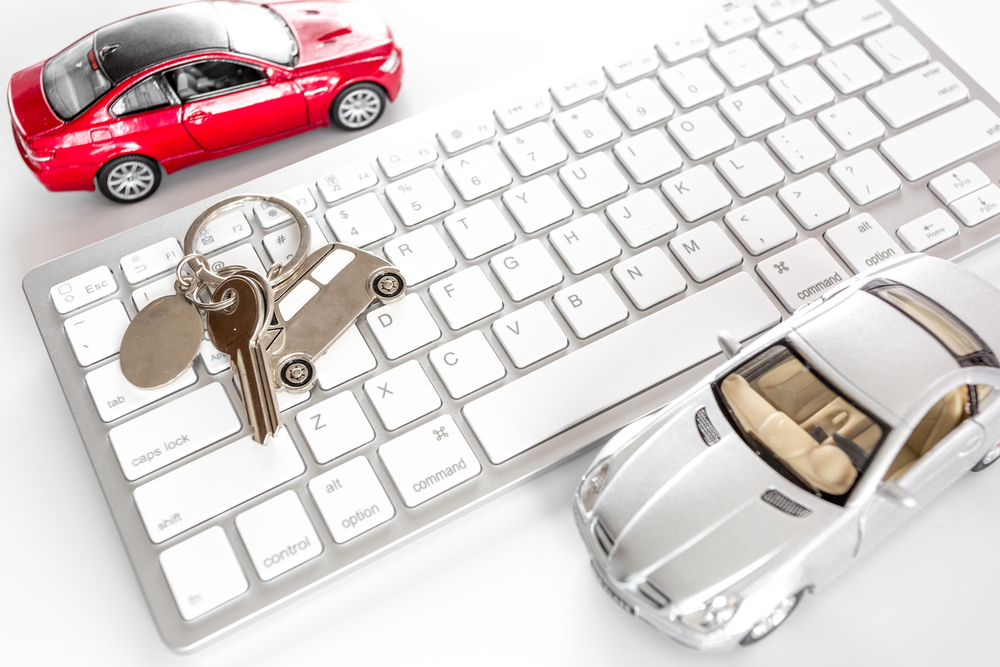Can You Sell Your Car to a Dealership?
The used car market and the price of used cars fluctuate with supply and demand. During a time of high demand for used cars, prices will typically increase. When car owners see that their car is of higher value, they may be curious about selling it—especially if they are in the market for a new vehicle.
While car owners can sell their car privately and list their vehicle on sites like Cars.com or even Craigslist, some owners simply don’t feel comfortable initiating a private sale. Can you sell your car to a dealership? Is selling to a dealership difficult? There are two few ways to sell a car to a dealership:
- Use the car as a trade-in
- Sell the car for cash
Selling a car to a dealership is actually a fairly simple transaction, but car owners will need to be prepared to negotiate. Before offering a car to a dealership for sale or as a trade-in for a new vehicle, car owners should:
- Clean their vehicle (detail it, too, if possible)
- Research the trade-in or resale value via Kelley Blue Book
- Check the payoff amount of the vehicle if there is still an outstanding loan
- Locate the title for the vehicle

Do Dealerships Buy Cars? Preparing a Vehicle to Sell to a Dealership
The car’s make/model, mileage and age all affect the value of the vehicle; these factors are largely out of the car owner’s control. However, the condition of the vehicle also affects the resale or trade-in value of a vehicle and car owners can control the physical appearance of their car.
Do dealerships buy cars? While selling to a dealership isn’t difficult, it does require that the seller prepares the vehicle. Before presenting a vehicle as a trade-in or for sale, car owners should make sure that the vehicle is in the best shape possible. Clean the car inside and out; detail the vehicle, too, if finances allow. In addition, repair any mechanical issues.
While some dealerships might accept any car for a trade-in, they won’t want to buy a vehicle that is in poor working order. In addition, presenting a clean and well maintained car won’t ding the price of the vehicle, and it might help it.
Can I Sell My Car to a Dealership? Be Sure to Research the Trade-In or Resale Value
Can I sell my car to a dealership? Car owners should know the value of their vehicle before offering it up for a trade-in or when selling it to a dealership. Kelley Blue Book (KBB) is one of the most trusted sources for researching car values.
KBB lets owners research both the resale value of the vehicle or the trade-in value. Owners will have to include all the details about their vehicle; check all applicable features and be honest about the condition.
Car owners will notice that the trade-in value is typically lower than the resale value. This is due to the fact that the dealership will want to make a profit on the vehicle. They are buying the car as a trade-in to hopefully resell on their lot.
Selling a car to a dealership is like trading in the vehicle. Remember, the dealership needs to make a profit, too. This is why a private sale commands a higher price. The buyer in a private sale is typically looking for a car to drive, not a car to resell. A dealership is looking at that car’s resale potential.
Check the Loan Payoff Amount for the Vehicle
If the vehicle that a buyer wishes to sell to a dealership still has an outstanding loan, the buyer will want to check the payoff amount of the loan before selling. Compare this amount to the potential trade-in value. If the trade-in value is not higher than the payoff amount, the seller will sell the car at a loss.
However, when the payoff amount is less than the potential trade-in value, the seller will profit. Selling a car to a dealership with an outstanding loan also could be easier than a private sale. The loan needs to be paid off before the car owner can sell the vehicle; any lien holders on the vehicle must be paid, as they, too, need to sign the car title when the car is sold.
KBB explains that selling with an outstanding loan might mean that the dealership requires the seller to pay the dealership the outstanding loan balance or a partial amount of that balance.
Locate the Title
Before selling a vehicle, the car owner should locate the title. Ideally, the title should be stored in a safe place that the car owner can easily access.
However, in some cases, the lender who financed the car holds the title. Again, if a loan balance is owed, this could complicate the deal. Car owners might opt to pay off the loan before selling to a dealership so they can have a clean title or the paperwork to title the vehicle in their name only. When a loan is paid in full, the lender will send legal documents to the car owner that state that the lender no longer has a lien on the vehicle.
What if the title has been stolen or lost? Car owners will need to report a stolen title to their local police. In addition, they will need to work with their local department of motor vehicles to re-title the vehicle. Every state might have different procedures for obtaining a new title.
How to Sell a Car to a Dealership as a Trade-In
While selling a car to a dealership will put cash in the car owner’s pocket, using the vehicle as a trade-in works a bit differently. When trading-in the vehicle, the car owner is still selling the vehicle to the dealership. However, instead of keeping the money from the sale, it is applied to offset the cost of a new vehicle purchase.
A trade-in helps lower the price of a new vehicle. The value of the trade-in is deducted from the purchase price of the vehicle. A trade-in can help buyers lower their monthly payments and possibly shorten their loan term, too.
Buyers also can lower the price of a new car further by applying a larger down payment. A down payment combined with a trade-in could be significant enough to allow a buyer to opt for a shorter loan term and pay off the new car quicker. Some buyers, though, just want lower monthly payments.
The trade-in value is available via KBB, and even when a car owner is only using their car as a trade-in, they should still research the value to ensure that they get the best deal. Since the trade-in will help offset the cost of a new car, it is beneficial for them to negotiate for the best price possible for a trade-in.
When presenting a car for a trade-in, car owners should make sure it’s in the best condition possible. Clean the car, detail it, and make any necessary repairs. Any issues could mean a lower offer from the dealership.

Selling a Car to Online Car Companies
Some car owners might not want to go through the hassle of selling their car to a local dealership. Another option is to sell the vehicle to companies like Carvana. The deal can be done virtually, although Carvana will inspect the car. However, selling to companies like Carvana can be an easy experience and most of the details can be handled online.
Other companies also offer to buy cars and use a virtual process, too. For car owners who just want to handle this process at home while sitting at a computer, these sites might be worth researching. If car owners don’t agree with an offer, they might just move on and explore other selling options.
The Biggest Tip When Selling to a Dealership
There is one major difference between selling a car privately and selling a car to a dealership: profit margins. While a private buyer might want the car for their personal use, a dealership will be reselling the vehicle. This means that dealerships will need to build in a profit and this is why selling to a dealership might result in a lower sale price.
However, not all car owners want to handle a private sale and may be willing to take less for an easier sale process. Some car owners might be concerned about potential scams when selling privately, while others just don’t want to deal with the hassle.
Selling to a dealership is fairly pain free. However, car owners need to empower themselves by researching the trade-in value of their vehicle. To make the selling process easier, car owners also can ensure that the loan on their car is paid in full. Selling a car with an outstanding loan could make the sale a bit more complicated, and the seller might need to pay the dealership all or a portion of the loan balance. In addition, if a car dealership makes a low offer, car owners can begin to negotiate based on the known value of their vehicle.
If the dealership and the car owner cannot come to a fair price, though, car owners can always walk away. Another dealership could offer a better price, or the owner might wish to wait to sell the vehicle. Ideally, both the dealership and the car owner should come away from the sale feeling that they scored a fair deal.
Recent Posts
Categories
Luxury Cars
Trucks
Sedans
